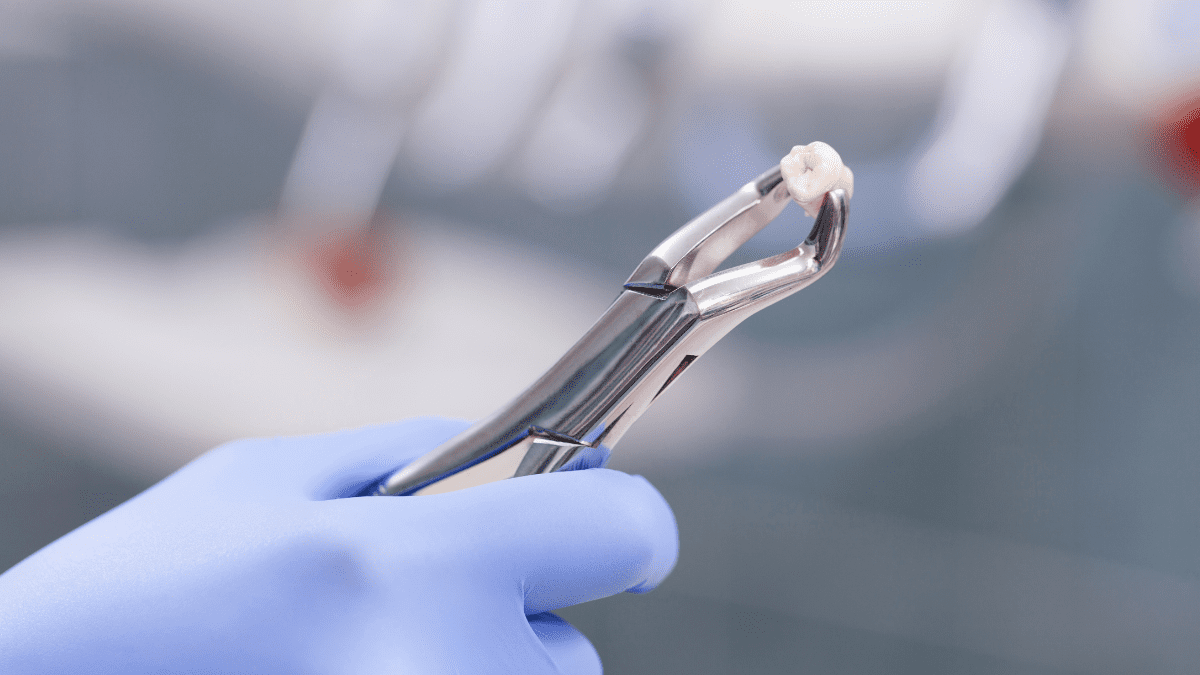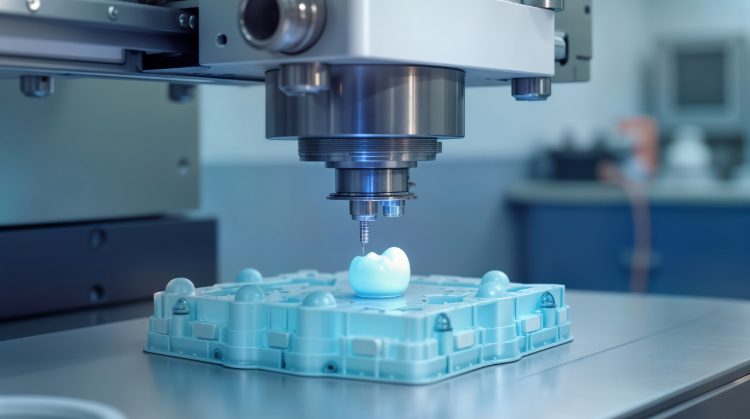At Dental Nation, Inc. in Las Vegas, NV, our primary goal is always to help you preserve your natural teeth. We believe a healthy, complete smile is vital for your overall well-being. However, sometimes, despite our best efforts with fillings or crowns, a tooth may be damaged or decayed beyond repair. In such cases, a tooth extraction becomes a necessary step to protect your oral health and prevent further complications.
A tooth extraction involves carefully removing your entire tooth from its socket. While the idea of “having a tooth pulled” might sound daunting, it’s a routine oral surgery procedure that can eliminate pain, prevent infection, and create a healthy foundation for future tooth replacement options.
Why Might a Tooth Extraction Be Necessary?
Our dentists usually recommend extraction only when other restorative methods aren’t enough to save your natural tooth. Here are some common situations where a tooth extraction might be recommended:
- Severe Tooth Decay: When a cavity has progressed so deeply that it has destroyed most of the tooth structure and can’t be repaired with a filling or root canal therapy.
- Advanced Gum Disease: Periodontal disease can weaken the bone and tissues supporting a tooth, causing it to become loose and eventually require removal.
- Fractured Tooth: A tooth that has sustained a severe fracture below the gum line or through the root may be beyond repair.
- Impacted Tooth: This often occurs with wisdom teeth that don’t have enough room to erupt properly, leading to pain, infection, or damage to neighboring teeth.
- Crowded Teeth: In some orthodontic cases, extractions might be necessary to create space for other teeth to move into proper alignment.
- Dental Trauma: An accident or injury might cause damage to a tooth that necessitates emergency extraction.
While general dentists perform many extractions, more complex cases, such as impacted wisdom teeth or deeply fractured teeth, are often referred to specialists like oral surgeons.
Preparing for Your Tooth Extraction
If a tooth extraction is recommended, our team at Dental Nation, Inc. will ensure you’re well-prepared. During your consultation, it’s crucial to inform us about any medications, vitamins, or supplements you are currently taking. We’ll advise you if you need to adjust any medications before your procedure.
We also understand that dental anxiety is common. That’s why we offer various sedation options to help you feel relaxed and comfortable throughout your extraction. We want your experience to be as stress-free as possible.
What to Expect During Your Extraction Procedure
A tooth extraction at Dental Nation, Inc. generally follows these steps:
- Numbing: We will administer local anesthesia to numb the affected tooth and surrounding gum tissue, ensuring you feel no pain during the procedure. If you’ve chosen sedation, those medications will be given as well.
- Gentle Removal: Using specialized dental instruments, our dentist will carefully loosen your tooth and gently remove it from its socket. In some cases, especially with badly decayed or broken teeth, minor incisions in your gums or dividing the tooth into sections may be necessary for easier removal.
- Cleaning the Socket: After the tooth is removed, the socket will be thoroughly cleaned and disinfected.
- Bone Graft (If Needed): To prevent bone loss in your jaw and prepare for future dental implants, our dentist might place a bone graft in the empty socket.
- Stitches (If Needed): Depending on the extraction, stitches may or may not be necessary.
A single tooth extraction typically takes between 30 and 60 minutes. Multiple extractions may take longer.
Benefits and Potential Considerations of Tooth Removal
The primary benefit of tooth extraction is the immediate relief from pain and the elimination of harmful bacteria that could otherwise spread and damage your surrounding teeth and gums. Removing an affected tooth gives you the best chance for long-term oral health.
Like any surgical procedure, tooth extraction carries a small risk of complications, such as delayed healing, dry socket, infection, or temporary numbness. Our team will discuss these possibilities with you and provide comprehensive post-operative instructions to minimize any risks.
Normal side effects after tooth removal include mild bleeding, bruising, discomfort, and swelling. These usually subside within a week, and following our detailed aftercare instructions will help you manage them effectively.
Recovery and Aftercare for a Smooth Healing Process
Recovery time varies depending on the complexity of the extraction, but most people feel back to normal in a few days. While you can usually return to routine activities within 48 to 72 hours, complete jawbone healing takes several weeks.
Tooth extraction aftercare is crucial for a smooth recovery and to prevent complications like dry socket.
Do’s:
- Eat soft foods: Stock up on items like yogurt, applesauce, soup, and mashed potatoes.
- Keep the extraction site clean: Gently rinse with an antimicrobial mouthwash two to three times a day, as directed by your dentist. Avoid brushing directly over the site until advised it’s safe.
- Take all medications as directed: This includes any prescribed antibiotics or pain relievers. Over-the-counter pain relievers like acetaminophen or ibuprofen can also help.
- Apply ice packs: To reduce swelling, apply an ice pack to your face for 20 minutes on, 20 minutes off.
Don’ts:
- Avoid strenuous activity: For the first 48-72 hours, avoid heavy lifting or exercise that significantly elevates your heart rate.
- Don’t poke the extraction site: Resist the temptation to touch the area with your tongue or fingers, as this can disrupt healing.
- No smoking or vaping: These activities constrict blood vessels, reducing blood flow and oxygen to the healing tissues.
- Avoid vigorous spitting or rinsing: Gentle motions are key to protecting the blood clot.
- Do not use straws: The suction can dislodge the crucial blood clot, leading to a dry socket.
Our team at Dental Nation, Inc. will provide you with a detailed list of post-surgical instructions and will be available to answer any questions you have during your recovery.
When to Call Dental Nation, Inc.
It’s important to contact us if you experience:
- A fever of 100.4 degrees Fahrenheit (38 degrees Celsius) or higher.
- Drainage (pus) around the extraction site.
- Severe pain that doesn’t improve with medication.
- Excessive or prolonged bleeding.
While hearing you need a tooth pulled isn’t ideal, sometimes a tooth extraction is the best way to eliminate infection and put you back on the path to a healthy, comfortable smile. At Dental Nation, Inc., we’ll always discuss your dental restoration options, such as dental implants, dental bridges, or partial dentures, to restore the appearance, function, and overall health of your smile.




